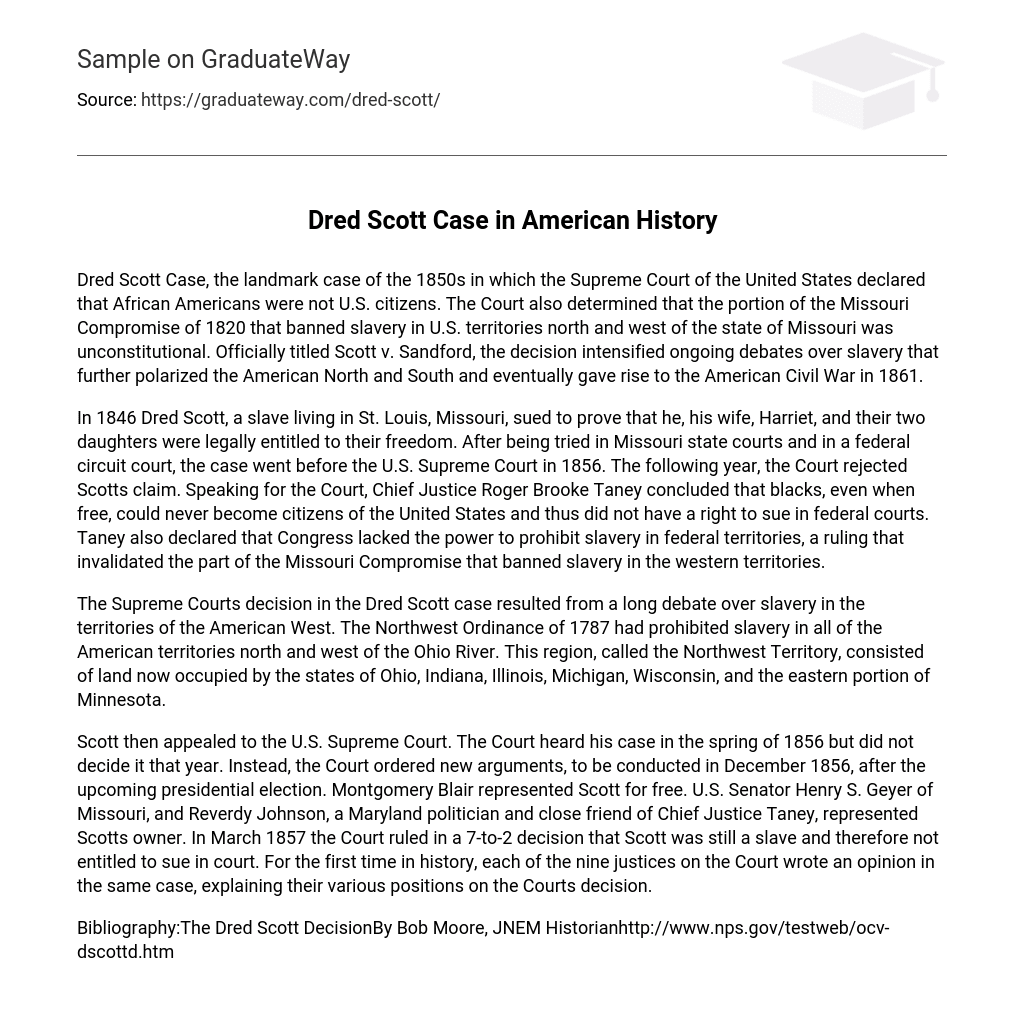In the 1850s, the Supreme Court of the United States ruled in Scott v. Sandford that African Americans were not entitled to U.S. citizenship and declared the Missouri Compromise unconstitutional, leading to intense debates over slavery and exacerbating regional tensions between the North and South. This decision ultimately played a role in triggering the American Civil War in 1861.
Dred Scott, an enslaved individual from St. Louis, Missouri, filed a lawsuit in 1846 seeking freedom for himself, his wife Harriet, and their two daughters. After multiple trials at both state and federal levels, the case finally reached the U.S. Supreme Court in 1856 where Scott’s claim was ultimately denied.
Chief Justice Roger Brooke Taney of the Supreme Court determined that African Americans, even if they were emancipated, could never attain citizenship in the United States and therefore did not possess the right to bring a lawsuit in federal courts. Additionally, Taney asserted that Congress lacked the authority to prohibit slavery in federal territories. This ruling invalidated a section of the Missouri Compromise which forbade slavery in western territories. The question of slavery’s presence in the American West was extensively debated prior to the Supreme Court’s decision on the Dred Scott case. It is worth noting that the Northwest Ordinance of 1787 had already banned slavery in all American territories situated north and west of the Ohio River. This area, known as the Northwest Territory, presently encompasses Ohio, Indiana, Illinois, Michigan, Wisconsin, and part of Minnesota.
Scott’s case was brought before the U.S. Supreme Court for an appeal. In 1856, the Court heard his case but delayed making a decision and requested new arguments in December of that year, after the upcoming presidential election. Scott had Montgomery Blair as his unpaid defense attorney, while U.S. Senator Henry S. Geyer and Reverdy Johnson, a close friend of Chief Justice Taney, represented Scott’s owner. In March 1857, the Court ultimately announced that Scott remained a slave and therefore did not possess the right to sue in court. This ruling marked an unprecedented event in history where all nine justices individually presented their opinions on a single case, elucidating their personal stances regarding the Court’s verdict.
Bibliography
- The Dred Scott DecisionBy Bob Moore, JNEM Historianhttp://www.nps.gov/testweb/ocv-dscottd.htm





